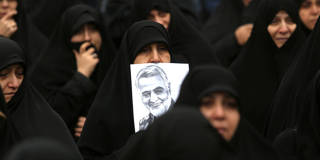Was Killing Suleimani Justified?
At a press conference following the US drone strike that killed Iran's top military commander and several others, a senior State Department official blurted out: “Jesus, do we have to explain why we do these things?” In fact, the international rule of law depends on it.

MELBOURNE – On January 3, the United States assassinated Qassem Suleimani, a top Iranian military commander, while he was leaving Baghdad International Airport in a car with Abu Mahdi al-Muhandis, an Iraqi leader of Kata’ib Hezbollah, an Iran-backed militia. All the occupants of the car were killed.